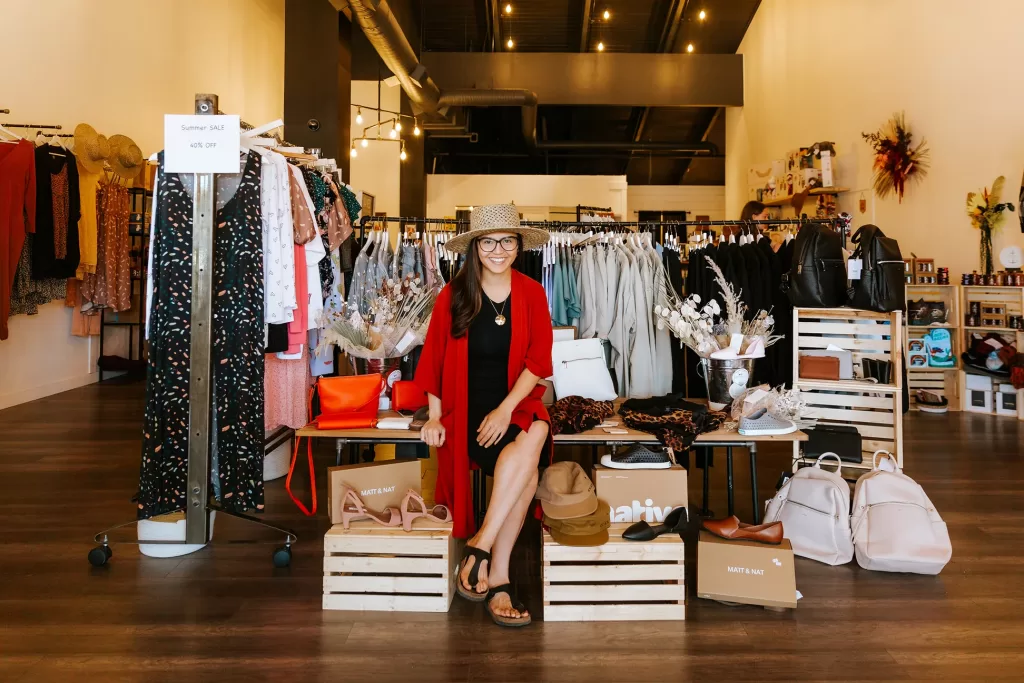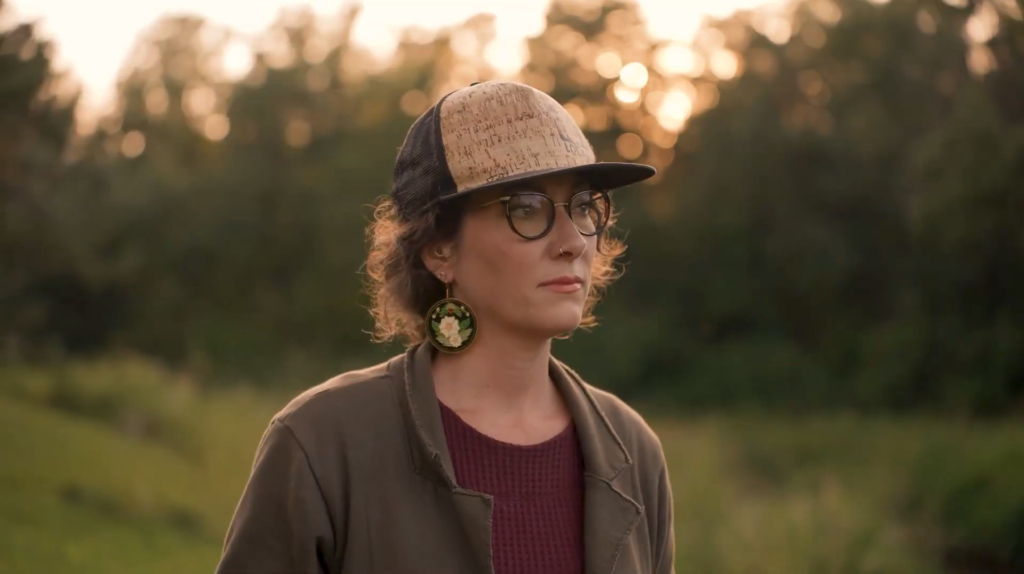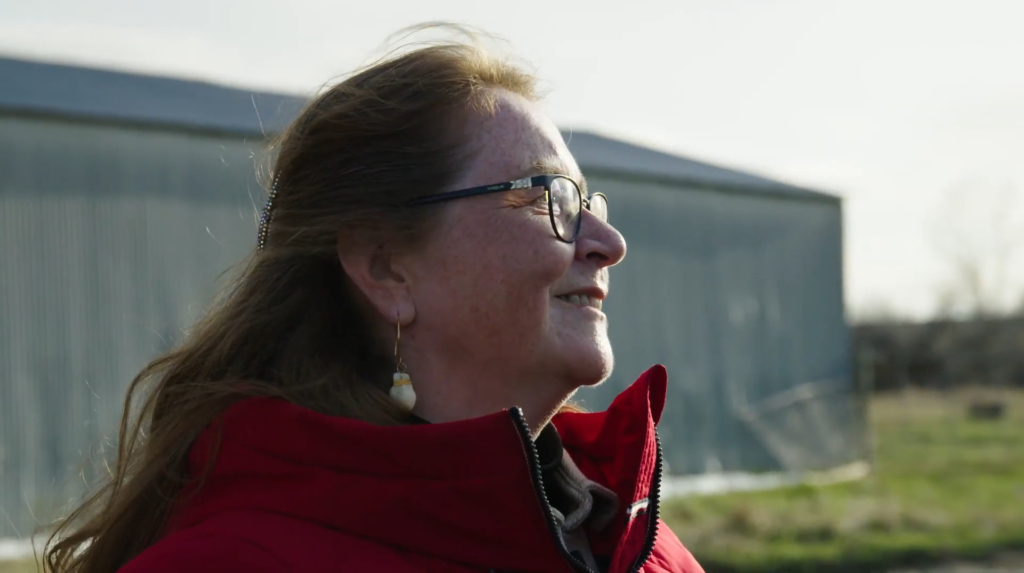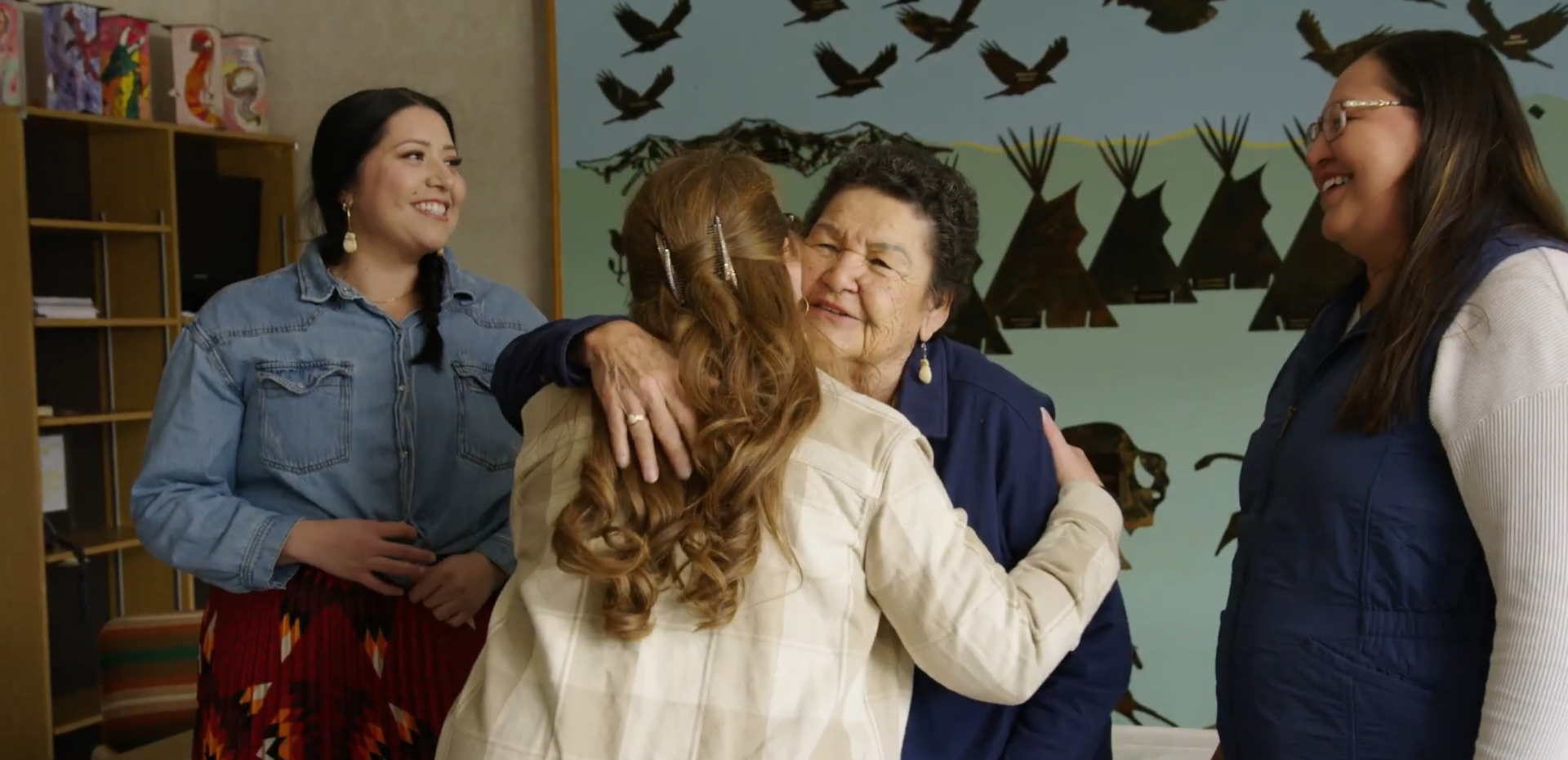Indigenous Women Entrepreneurs at the Forefront of the B Corp Movement
October 21, 2025
In recent weeks, two important dates invite reflection and action across North America: Canada’s National Day for Truth and Reconciliation on September 30 and Indigenous Peoples’ Day in the United States on October 13. These observances call us to honor Indigenous histories, reckon with the legacies of colonization, and celebrate the resilience and leadership of Indigenous communities today.
One powerful expression of that leadership is the growing number of Indigenous women entrepreneurs building businesses that serve both people and planet. Despite facing systemic barriers ranging from limited access to capital and networks to the lingering effects of discriminatory laws like Canada’s Indian Act, Indigenous women are launching companies at twice the rate of non-Indigenous women. Their businesses often extend beyond personal success to advance community well-being, cultural preservation, and environmental stewardship.
Yet persistent inequities remain. Indigenous women founders report greater difficulty accessing loans, mentorship, and mainstream business networks. Only 1.86% of Canadian venture capital reaches First Nations and Inuit founders, and many Indigenous entrepreneurs still rely on personal savings rather than institutional funding to get started. This creates a paradox: extraordinary entrepreneurial spirit and innovation, but constrained by structures that weren’t designed to support them.
That’s where programs like B Lab U.S. & Canada’s Level program come in. Level was created to support women of color, including Indigenous founders, in navigating both systemic inequities and the complex journey of becoming a Certified B Corporation—a designation that measures a company’s impact on workers, communities, and the environment. For many Indigenous women, whose business models naturally align with B Corp values of stakeholder governance and collective well-being, Level offers recognition and a pathway to connect their vision with a global movement for inclusive, sustainable business.
This year, it’s especially important to spotlight the Indigenous women entrepreneurs who have participated in Level, and to celebrate how they’re reshaping business in both the U.S. and Canada.
Alissa Assu, Founder & Owner, RavenSong, Bear Essential Oils, West Coast Wildflowers

Photo courtesy of the Nuu-chah-nulth Economic Development Corporation (NEDC)
For Alissa Assu, entrepreneurship is inseparable from healing, culture, and community. A member of the Nisga’a and Wet’suwet’en First Nations and part of the Laksamshu (Fireweed and Owl) Clan, Assu is the founder of multiple businesses rooted on Vancouver Island: RavenSong Soap & Candle, Bear Essential Oils, and West Coast Wildflowers. Each venture is an expression of Indigenous resilience and identity, blending tradition with contemporary entrepreneurship.
Through Bear Essential Oils, Assu draws on ancestral plant knowledge and community spirit to create organic, wildcrafted essential oils that support wellness and self-care. West Coast Wildflowers, a lifestyle boutique in Campbell River, uplifts Indigenous artisans alongside other Canadian makers, creating a safe, inclusive retail space on the traditional territory of the Ligwiłda’xw Peoples. RavenSong Soap & Candle, which Alissa co-founded with Cody Assu, produces artisan soaps and candles that tell stories through scent, honoring the heritage of the Haida, Nisga’a, Wet’suwet’en, and We Wai Kum Nations.
Assu’s work is also deeply personal. As a kidney transplant survivor and former youth in care, reconnecting with traditional medicine has been part of her own journey of healing from intergenerational trauma. She frames her businesses not only as commercial enterprises but as community-led movements: spaces where Indigenous values of reciprocity, sustainability, and cultural integrity can thrive in competitive retail markets. Beyond business, Assu is an active volunteer with organizations including the North American Indigenous Games, Canadian Blood Services, and the First Nations Health Authority, amplifying Indigenous voices in health and wellness.
Her leadership reflects the challenges and opportunities many Indigenous women founders face: limited access to capital, networks, and systemic recognition, yet a profound capacity to innovate and align entrepreneurship with community care. In Assu’s words, “authentic Indigenous begins here.”
Olivia Roanhorse, COO & Portfolio Lead, Roanhorse Consulting, LLC

Olivia Roanhorse sees business as a vehicle for shifting power and reimagining systems. A citizen of the Navajo Nation (Diné), she grew up in Window Rock, Arizona—the Nation’s capital—and carries forward Diné teachings in her leadership, guided by her clans: Near to Water (To’ahaní) on her mother’s side and Bitter Water (To’dichiiníí) on her father’s. Today she lives in Albuquerque, New Mexico, on unceded Tewa territory, where she serves as Chief Operating Officer and Portfolio Lead of Roanhorse Consulting, LLC (RCLLC).
With more than 25 years of experience in public health, academia, and nonprofits, Roanhorse brings both lived experience and professional expertise to her work. At RCLLC, she oversees strategic direction, operational excellence, and financial sustainability for the consulting firm, which provides health and wealth solutions designed by and for Native communities. Her approach emphasizes true partnership: elevating community voices, centering culture and language, and rejecting one-size-fits-all systems that fail to account for Indigenous realities.
Roanhorse’s career reflects this commitment. Before RCLLC, she was Vice President of Programs at the Notah Begay III Foundation, where she advanced health equity for Native youth. Earlier roles in Chicago spanned clinical management, disparities research, and policy analysis. She also pursued doctoral studies at Johns Hopkins before stepping away, recognizing the institution’s limited commitment to health equity—a decision that underscored her belief that lived experience and Indigenous worldviews are essential to designing meaningful solutions.
Under Olivia’s leadership, Roanhorse Consulting is unapologetically building a future where Indigenous knowledge is centered in the systems that shape health and wealth. The firm’s culture reflects those values, prioritizing wellness, transparency, and the dismantling of white supremacist norms in the workplace. The goal is simple but profound: to create a world where Indigenous children and grandchildren can thrive.
Patrice Mousseau, Founder & CEO, Satya Organics

Patrice Mousseau’s path to entrepreneurship began at home. A member of the Fort William First Nation and a former broadcast journalist, she drew on both traditional medicine and scientific research when her infant daughter, Esme, was diagnosed with severe eczema. Unwilling to rely on steroid creams, she experimented with a $15 crockpot and a handful of organic ingredients. Within two days, her homemade balm cleared Esme’s skin. That formula became the foundation for Satya Organics, a botanically based line of steroid-free remedies that now reaches thousands of customers.
What began as a necessity has grown into one of Canada’s most recognizable Indigenous-led brands. Satya Organics is the first Indigenous skincare company to be carried in Shoppers Drug Mart, with products now on the shelves of more than 1,100 locations, as well as health stores and pharmacies nationwide. Certified organic, cruelty-free, and carbon neutral, Satya reflects Mousseau’s conviction that natural, effective skincare should be accessible to every family. The company has also attracted investment from Raven Indigenous Capital Partners, fueling its rapid growth while staying true to its founding principles.
Mousseau has never lost sight of the values that anchor Satya’s growth: care for family, respect for traditional knowledge, and a commitment to accessible, natural remedies. She has built Satya into a Certified B Corporation, ensuring accountability not just to profit but to people and planet. Her team, largely made up of women and single mothers, earns a living wage in supportive working conditions. Mousseau has also launched an innovation lab to mentor small-scale beauty entrepreneurs, with a particular focus on Indigenous women, providing them with the tools and expertise to bring their own formulations to market.
For Mousseau, the business is as much about legacy as it is about skincare. She named her company after the Sanskrit word for “truth” and insists that Satya remain true to its origins: combining ancestral knowledge, scientific integrity, and community care. That commitment extends to her vision for the next generation—especially her daughter: “Because she sees her mother doing these things… she feels limitless in her opportunities and bold in her conversations with other people, boys in the schoolyard, and men as she grows older,” Mousseau says. “She is never going to feel limited by her sex.”

Meet the Women of Level
Learn more about business leaders building a more equitable and just economy in a new downloadable resource from B Lab U.S. & Canada.
Annie Korver, Founder & Principal, Rise Consulting

Annie Korver, a citizen of the Métis Nation, founded Rise Consulting in 2013 to help businesses move beyond statements of support toward meaningful action on reconciliation. Guided by the Truth and Reconciliation Commission’s Call to Action 92, the firm advances Indigenous inclusion and economic reconciliation across sectors. From its base in Fernie, British Columbia, Rise has grown into a national consultancy that partners with organizations in energy, finance, natural resources, and beyond, helping them recognize Indigenous rights, strengthen relationships, and embed reconciliation into everyday practice.
Rise’s work is grounded in the principles of respect, reciprocity, and responsibility. The firm supports clients in embedding the United Nations Declaration on the Rights of Indigenous Peoples (UNDRIP) into governance, operations, and strategy, while also centering Indigenous rights, sovereignty, and voices in economic development projects. Its services span leadership, community engagement, workplace lifecycle, supply chain, sustainability, and ESG—always guided by the tenet “nothing about you, without you.” In 2023, Rise became a Certified B Corporation, formalizing its alignment with global standards for social and environmental accountability.
Korver’s leadership has been recognized nationally. She was named an EY Entrepreneur of the Year finalist in 2024 and serves as a director with both the Canadian Council for Indigenous Business and Canadian Business for Social Responsibility. She holds an MBA from the University of Calgary, as well as the Global Competent Boards designation in ESG. Her approach to consulting emphasizes not only corporate responsibility but also cultural humility, relationship-building, and the long-term goal of ensuring that prosperity never comes at the expense of Indigenous rights or well-being.
For Korver, reconciliation is both professional and personal. Living with her husband and children in Ktunaxa ʔamakʔis, the homelands of the Ktunaxa Peoples, she embodies the balance of family, community, and business leadership. Rise Consulting’s very name reflects her mission: to support the rising presence of Indigenous Peoples in Canada, ensuring that reconciliation is not only spoken but lived.
Lacey Horn, CEO, Native Advisory

Lacey Horn (Cherokee Nation) is a financial strategist whose career has been defined by protecting and expanding the economic sovereignty of Native Nations. As the founder and CEO of Native Advisory, a 100% Native woman–owned and Certified B Corporation, Horn leads a strategic consulting firm that provides bespoke financial services to Tribal governments, Native-owned businesses, and companies working with Tribes. Her mission? To help Native communities safeguard their resources today while investing for seven generations and beyond.
Horn’s path to entrepreneurship was built on deep financial expertise. After early roles at Hunt Oil and KPMG, she served as Treasurer of the Cherokee Nation from 2011 to 2019, where she doubled the Nation’s budget from $600 million to $1.2 billion, oversaw a $400 million expansion of the Nation’s healthcare system, and achieved eight consecutive years of clean audits. At Native Advisory, she and her team have advised on and secured more than $1.4 billion in funding for Tribal clients, helping leaders modernize treasury operations, clean up audit backlogs, deploy stimulus funding strategically, and strengthen resilience across healthcare, technology, and food sovereignty.
Horn’s influence extends well beyond her firm. She serves as Chairwoman of the Native American Rights Fund (NARF), the nation’s oldest nonprofit law firm dedicated to protecting Native rights, and as a trustee of the Smithsonian’s National Museum of the American Indian. She is a nationally recognized thought leader, frequently sharing her vision for transformational financial leadership that integrates traditional Cherokee values with modern economic systems.
Through Native Advisory, Horn demonstrates that finance can be a tool for sovereignty, cultural preservation, and prosperity. Her approach reflects a distinctly Indigenous worldview: one that balances rigorous strategy with long-term stewardship.
Andréanne Mulaire Dandeneau, Founder & CEO, Anne Mulaire

For Andréanne Mulaire Dandeneau, fashion is both cultural expression and climate action. A designer of Anishinaabe and French Métis heritage, Dandeneau launched her eponymous brand Anne Mulaire in 2005 with the goal of creating clothing that honors her roots while advancing sustainable, circular practices. Twenty years later, the Winnipeg-based label has become a leading name in Indigenous and ethical fashion, offering inclusive sizing (XXS–6X), small-batch and made-to-order manufacturing, and a deep commitment to sustainability.
From the start, Dandeneau rooted the brand in heritage and storytelling. Her Heritage Collection, created in collaboration with her father, an artist, weaves traditional Métis and Anishinaabe motifs into contemporary designs. From its facility on Treaty 1 territory—the traditional lands of the Anishinaabe and Swampy Cree Peoples, and the homeland of the Métis Nation—Anne Mulaire leads with environmental responsibility, running a Zero-Waste Program and offering circular initiatives like resale, repair, and refresh services. Innovations like the W8STED sock, made entirely from production scraps, reflect Dandeneau’s determination to turn textile waste into meaningful new products.
As a Certified B Corporation, Anne Mulaire pairs sustainability with social responsibility. The company offsets its carbon emissions, sources eco-conscious fabrics, and supports Canadian makers through local production. Its operations have cut 15,000 pounds of textile waste and reduced carbon emissions by the equivalent of more than 140,000 kilometers of driving. The brand also embraces inclusivity, ensuring its garments are accessible across a wide range of body types and offering custom tailoring to extend garment life.
Dandeneau has been recognized with the Excellence in Aboriginal Business Leadership Award and commissions from the Royal Winnipeg Ballet and the Canadian Museum for Human Rights, among others. But her vision remains firmly community- and values-driven, showing that fashion can respect Mother Earth, preserve cultural knowledge, and prove that style and sustainability can thrive together.
Lesley Kabotie, Founder, Indigenous Collaboration

Lesley Kabotie (Crow Tribe of Montana) has dedicated her career to creating spaces where Indigenous communities can solve their most pressing challenges together. As the founder and president of Indigenous Collaboration, Inc., a Native- and woman-owned public benefit corporation based in Denver, she provides consensus-based facilitation, strategic planning, and leadership development for Tribal governments, Native nonprofits, and organizations serving Indigenous peoples. Her approach reflects a core belief: the answers to Indian Country’s challenges already exist within the communities themselves; they only need the opportunity to be voiced and acted upon.
Kabotie’s background bridges worlds. The daughter of a Crow activist and a Scotch-Irish rancher, she grew up on the Crow Reservation in Montana, shaped by a family deeply rooted in both cultural tradition and public service. Her grandmother, Susie Walking Bear, was the first Native registered nurse in the United States; her grandfather, Tom Yellowtail, was a medicine man and Sundance chief. With degrees from Stanford (anthropology) and Regis University (nonprofit management), Kabotie has combined academic expertise with cultural knowledge to design processes that honor both traditional wisdom and contemporary organizational needs.
Through Indigenous Collaboration, Kabotie has worked with Tribal leaders and communities on issues ranging from energy and economic development to education, health, housing, and language preservation. Her methods are grounded in participation, teamwork, creativity, consensus, and action—values that foster clarity and cohesion in even the most complex or divisive situations. She has become known as a master facilitator, guiding groups through dialogue that surfaces collective insight and produces concrete, durable plans of action.
For Kabotie, this work is both professional and deeply personal. She sees her role as helping communities reconnect with their own capacity for self-determination and healing. “No one else holds the answers to these issues but us,” she has said. By cultivating authentic dialogue rooted in cultural values, Kabotie helps communities chart their own futures, strengthening sovereignty, resilience, and the well-being of Indigenous peoples for generations to come.
Honoring Leadership, Building the Future
The journeys of these seven Indigenous women entrepreneurs—spanning skincare, consulting, finance, fashion, and community collaboration—reflect both resilience and vision. Each has confronted systemic barriers, from limited access to capital and networks to the weight of colonial legacies, and transformed them into opportunities to build businesses rooted in cultural integrity, sustainability, and community care.
As part of the Level program, these founders have not only advanced their own ventures but have reshaped the larger business landscape. Their work demonstrates how Indigenous values—reciprocity, stewardship, and collective well-being—naturally align with B Corp principles and challenge the dominant models of growth at any cost. They remind us that entrepreneurship can be a force for reconciliation, healing, and long-term prosperity.
With Truth and Reconciliation Day in Canada and Indigenous Peoples’ Day in the U.S. approaching, this is a moment to recognize and honor their leadership. The businesses they’ve built are more than enterprises; they’re commitments to future generations and to a way of doing business that balances profit with purpose. For the B Corp community, their example offers both inspiration and a call to action: to continue removing barriers, amplifying Indigenous voices, and building an economy in which all people and cultures can thrive.
Copyright B Lab U.S. & Canada
B The Change gathers and shares the voices from within the movement of people using business as a force for good and the community of Certified B Corporations. The opinions expressed do not necessarily reflect those of the nonprofit B Lab.
Sign Up for our B The Change Newsletter
Read stories on the B Corp Movement and people using business as a force for good. The B The Change Newsletter is sent weekly.
